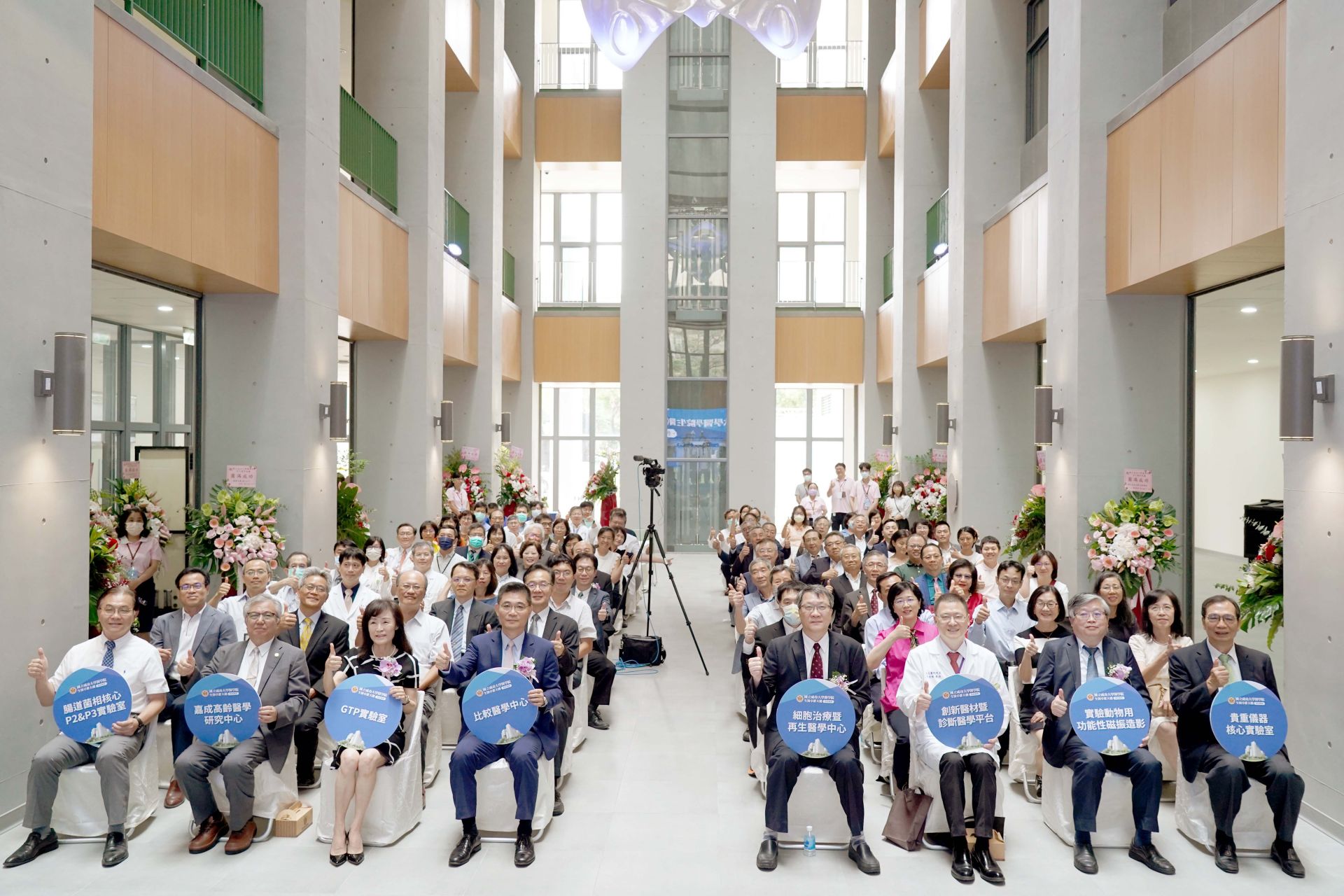SDG3
[Phoenix Lecture] Academician Pan-Chyr Yang on "Development Opportunities in Taiwan's Biomedical Industry"
In the post-pandemic era, with factors such as an aging society, the prospects for the global biomedical industry are highly promising. Dr. Pan-Chyr Yang, an Academician of the Academia Sinica and a professor of internal medicine at National Taiwan University College of Medicine, delivered a speech at NCKU's "Phoenix Lecture" on May 17th. He spoke on "Development Opportunities in Taiwan's Biomedical Industry," emphasizing the potential of Taiwan's biomedical industry lies in globalizing smart healthcare. This involves Taiwan serving as an initial market, aligning regulations with international standards, guiding industry players through certification processes, and implementing practical applications, all in line with the New Southbound Policy to expand into international markets.
President Meng-Ru Shen expressed gratitude to Dr. Pan-Chyr Yang for taking the time out of his busy schedule to serve as the speaker for the second session of the NCKU Phoenix Lecture. President Shen praised Dr. Yang as the pioneer of precision medicine in Taiwan, particularly for his contributions in lung cancer treatment, promoting personalized medicine, and advocating for low-dose CT lung cancer screening. Dr. Yang's ability to connect medical science with Taiwan's strongest information and communication technology (ICT) infrastructure has significantly advanced smart healthcare in Taiwan. President Shen's most profound impression of Dr. Yang is his humility; even as an intern, Dr. Yang patiently explained medical queries, demonstrating that his success was not arbitrary.
Dr. Yang believes that biomedicine will be Taiwan's other "guardian deity" alongside its electronics industry. In recent years, Taiwan's top five electronics manufacturers (including Foxconn, Pegatron, and Wistron) have actively collaborated with the biomedicine industry, and the burgeoning AI technology has subtly transformed the biomedical landscape, shortening drug development timelines and enhancing areas such as precision medicine, diagnostics, and medical imaging. While current precision medicine focuses mainly on disease treatment, Dr. Yang advocates for a shift towards preventive care and early diagnosis.
Given Taiwan's limited domestic market, the biomedical industry must set its sights on the international stage. Currently, Taiwan's export proportion in the global medical device market is approximately 1.29%, and in the pharmaceutical market, it's around 0.19%. Dr. Yang suggests that Taiwan should start by utilizing its domestic market as a launchpad, verifying research outcomes, obtaining certifications, and implementing applications in Taiwan before expanding into Southeast Asian markets through the New Southbound Policy and eventually exporting to regions like the EU and the US. Dr. Yang noted that among the top 10 biomedicine companies listed in Taiwan by revenue in 2023, most were export-oriented.
Dr. Yang recommends that the government review and relax relevant regulations, certifications, and verifications. While Taiwan has nurtured numerous talented engineers, there is a need to strengthen the cultivation of leaders with a comprehensive view. Mergers and acquisitions can quickly expand the scale of the biomedical industry, but a sufficiently large scale is essential for entering the international market.
Dr. Yang also suggests that Taiwan's biomedical industry should not rely solely on national health insurance. Instead, the government should increase healthcare expenditure to more than 8% of GDP, prioritize new drugs, high-quality generic drugs, and innovative medical devices with export potential for inclusion in national health insurance, offer preferential pricing, and leverage private sector resources (out-of-pocket and commercial insurance) to complement any deficiencies in national health insurance.
AI is ubiquitous, and Taiwan possesses a wealth of healthcare data. However, the government's conservative approach in utilizing this precious data hinders progress. Currently, twelve Taiwanese hospitals have signed cooperation agreements with a US data platform aimed at integrating real-world data for research purposes. Taiwan's ownership of vast health-related data could potentially make it a leader in AI applications, prompting reflection on its future role.
Dr. Pan-Chyr Yang is a renowned chest physician and an international authority on lung cancer research. His expertise spans internal medicine, chest and critical care medicine, oncology, cellular biology, molecular biology, and ultrasound medicine. Dr. Yang's contributions to Taiwan's biomedical research have been profound, significantly impacting the development of the biomedical industry. He has received numerous prestigious awards domestically and internationally, including being appointed as the 11th National Lecturer by the Ministry of Education, a Fellow of the World Academy of Sciences for the Developing World, a Fellow of the National Academy of Inventors (NAI), and a Fellow of the Industrial Technology Research Institute.
To provide faculty and students with a broader perspective and enhance academic standards and capacity, NCKU established the "Phoenix Lecture" in 2024. Under this initiative, the President or various colleges invite internationally renowned scholars, prominent figures in their fields, and representatives from industry to share knowledge and experiences with the aim of injecting new vitality and thinking into teaching and research and further increasing domestic and international influence.
President Meng-Ru Shen expressed gratitude to Dr. Pan-Chyr Yang for taking the time out of his busy schedule to serve as the speaker for the second session of the NCKU Phoenix Lecture. President Shen praised Dr. Yang as the pioneer of precision medicine in Taiwan, particularly for his contributions in lung cancer treatment, promoting personalized medicine, and advocating for low-dose CT lung cancer screening. Dr. Yang's ability to connect medical science with Taiwan's strongest information and communication technology (ICT) infrastructure has significantly advanced smart healthcare in Taiwan. President Shen's most profound impression of Dr. Yang is his humility; even as an intern, Dr. Yang patiently explained medical queries, demonstrating that his success was not arbitrary.
Dr. Yang believes that biomedicine will be Taiwan's other "guardian deity" alongside its electronics industry. In recent years, Taiwan's top five electronics manufacturers (including Foxconn, Pegatron, and Wistron) have actively collaborated with the biomedicine industry, and the burgeoning AI technology has subtly transformed the biomedical landscape, shortening drug development timelines and enhancing areas such as precision medicine, diagnostics, and medical imaging. While current precision medicine focuses mainly on disease treatment, Dr. Yang advocates for a shift towards preventive care and early diagnosis.
Given Taiwan's limited domestic market, the biomedical industry must set its sights on the international stage. Currently, Taiwan's export proportion in the global medical device market is approximately 1.29%, and in the pharmaceutical market, it's around 0.19%. Dr. Yang suggests that Taiwan should start by utilizing its domestic market as a launchpad, verifying research outcomes, obtaining certifications, and implementing applications in Taiwan before expanding into Southeast Asian markets through the New Southbound Policy and eventually exporting to regions like the EU and the US. Dr. Yang noted that among the top 10 biomedicine companies listed in Taiwan by revenue in 2023, most were export-oriented.
Dr. Yang recommends that the government review and relax relevant regulations, certifications, and verifications. While Taiwan has nurtured numerous talented engineers, there is a need to strengthen the cultivation of leaders with a comprehensive view. Mergers and acquisitions can quickly expand the scale of the biomedical industry, but a sufficiently large scale is essential for entering the international market.
Dr. Yang also suggests that Taiwan's biomedical industry should not rely solely on national health insurance. Instead, the government should increase healthcare expenditure to more than 8% of GDP, prioritize new drugs, high-quality generic drugs, and innovative medical devices with export potential for inclusion in national health insurance, offer preferential pricing, and leverage private sector resources (out-of-pocket and commercial insurance) to complement any deficiencies in national health insurance.
AI is ubiquitous, and Taiwan possesses a wealth of healthcare data. However, the government's conservative approach in utilizing this precious data hinders progress. Currently, twelve Taiwanese hospitals have signed cooperation agreements with a US data platform aimed at integrating real-world data for research purposes. Taiwan's ownership of vast health-related data could potentially make it a leader in AI applications, prompting reflection on its future role.
Dr. Pan-Chyr Yang is a renowned chest physician and an international authority on lung cancer research. His expertise spans internal medicine, chest and critical care medicine, oncology, cellular biology, molecular biology, and ultrasound medicine. Dr. Yang's contributions to Taiwan's biomedical research have been profound, significantly impacting the development of the biomedical industry. He has received numerous prestigious awards domestically and internationally, including being appointed as the 11th National Lecturer by the Ministry of Education, a Fellow of the World Academy of Sciences for the Developing World, a Fellow of the National Academy of Inventors (NAI), and a Fellow of the Industrial Technology Research Institute.
To provide faculty and students with a broader perspective and enhance academic standards and capacity, NCKU established the "Phoenix Lecture" in 2024. Under this initiative, the President or various colleges invite internationally renowned scholars, prominent figures in their fields, and representatives from industry to share knowledge and experiences with the aim of injecting new vitality and thinking into teaching and research and further increasing domestic and international influence.
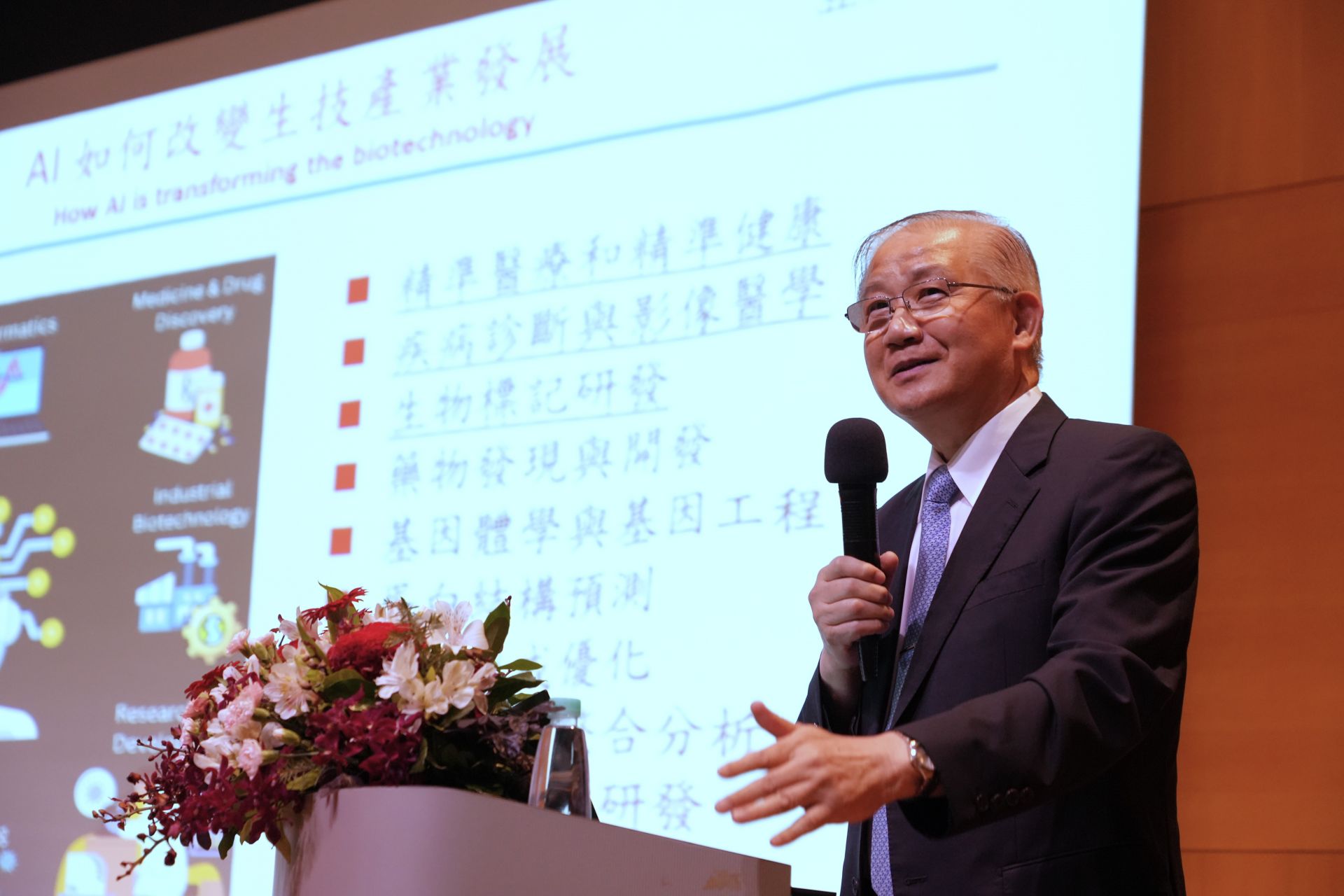
Academician Pan-Chyr Yang will serve as the speaker for the second session of the NCKU Phoenix Lecture, discussing the development opportunities of Taiwan's biomedical industry.
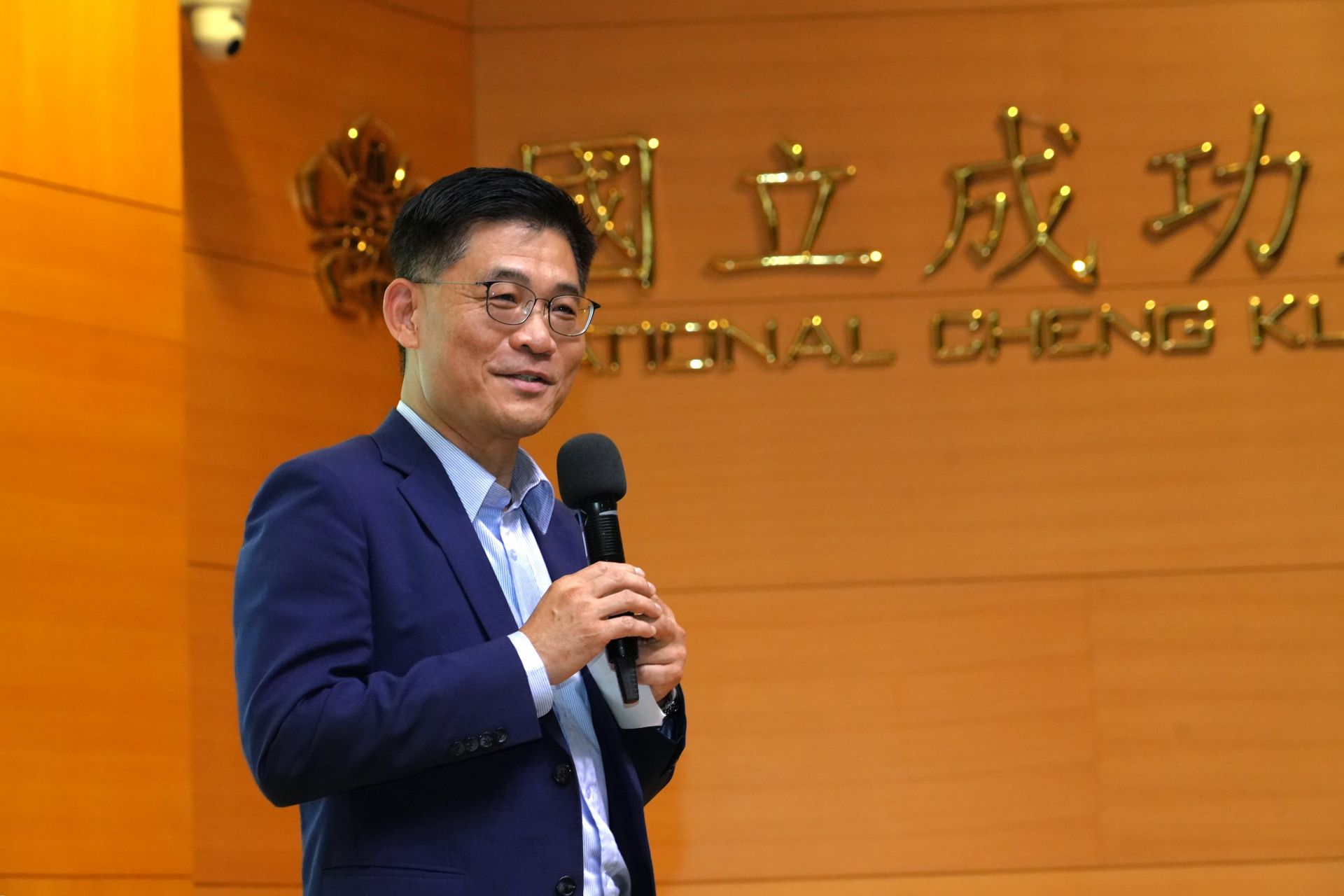
Principal Meng-Ru Shen praises Academician Pan-Chyr Yang as the pioneer of precision medicine in Taiwan.
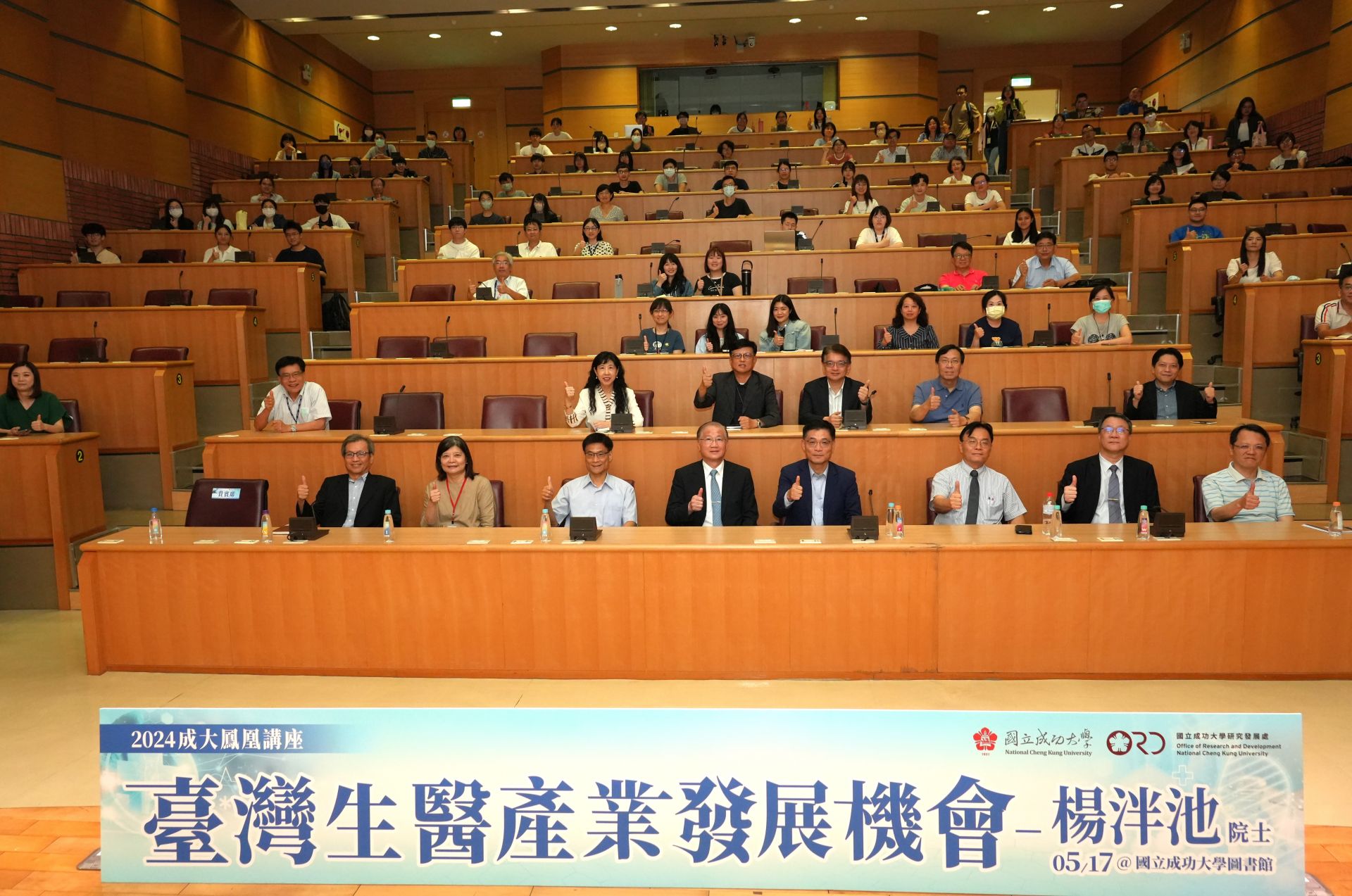
Group photo of participants at the NCKU Phoenix Lecture.
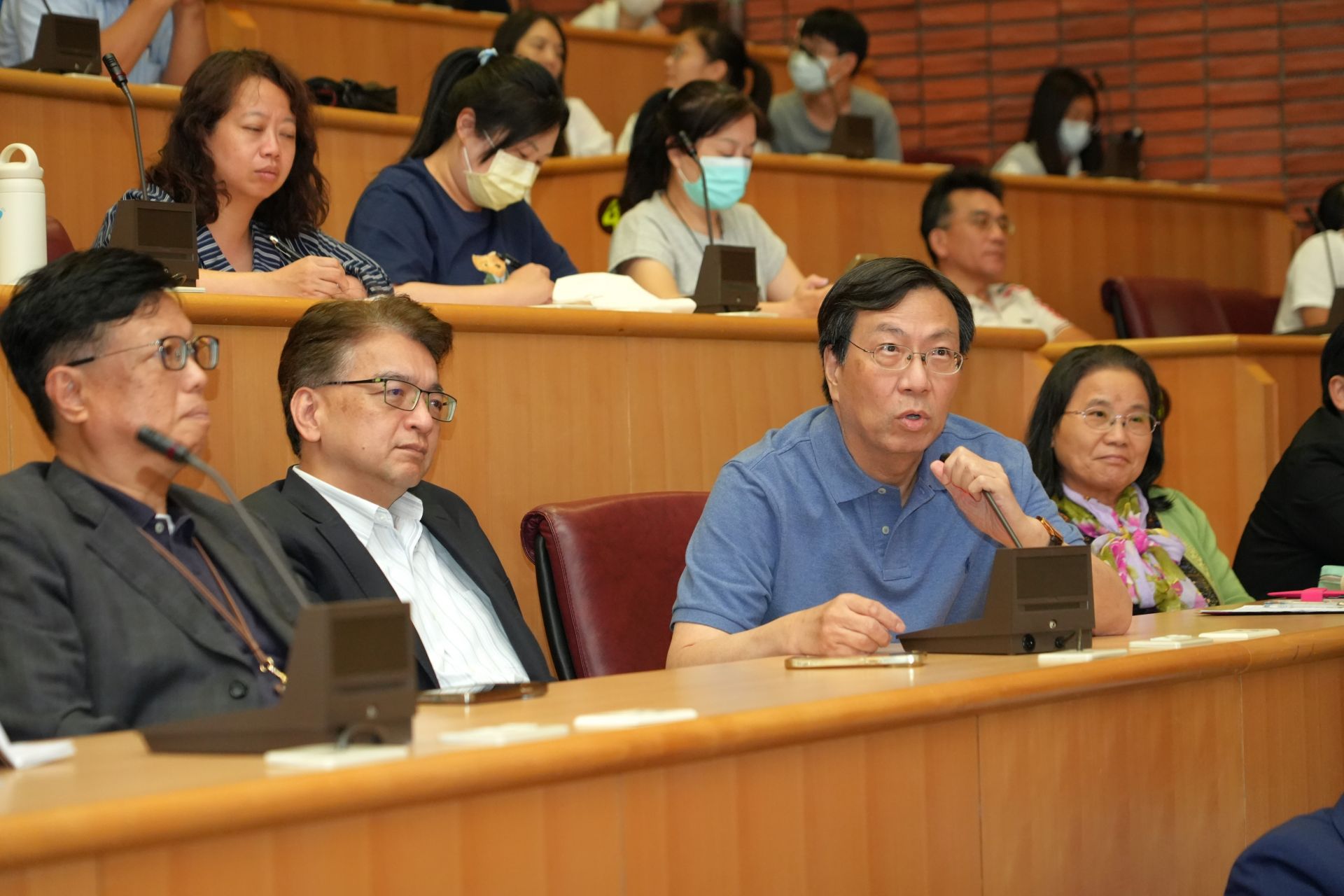
After Academician Pan-Chyr Yang concluded his speech, the attendees enthusiastically raised questions and engaged in discussions.
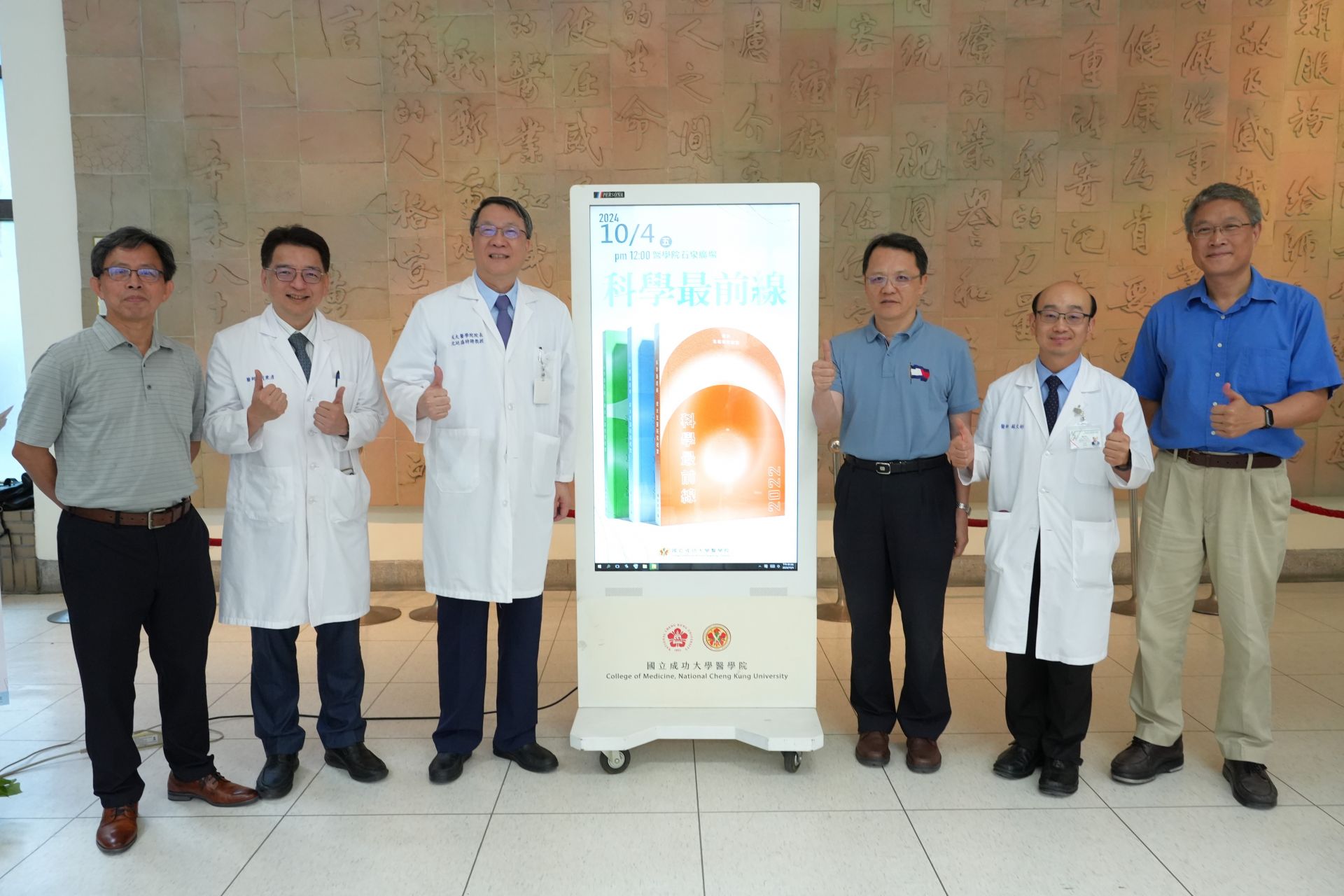
SDG3"Medical Frontiers: NCKU Biomedical Research" Book Launch – Showcasing NCKU's Medical School Growth.
View more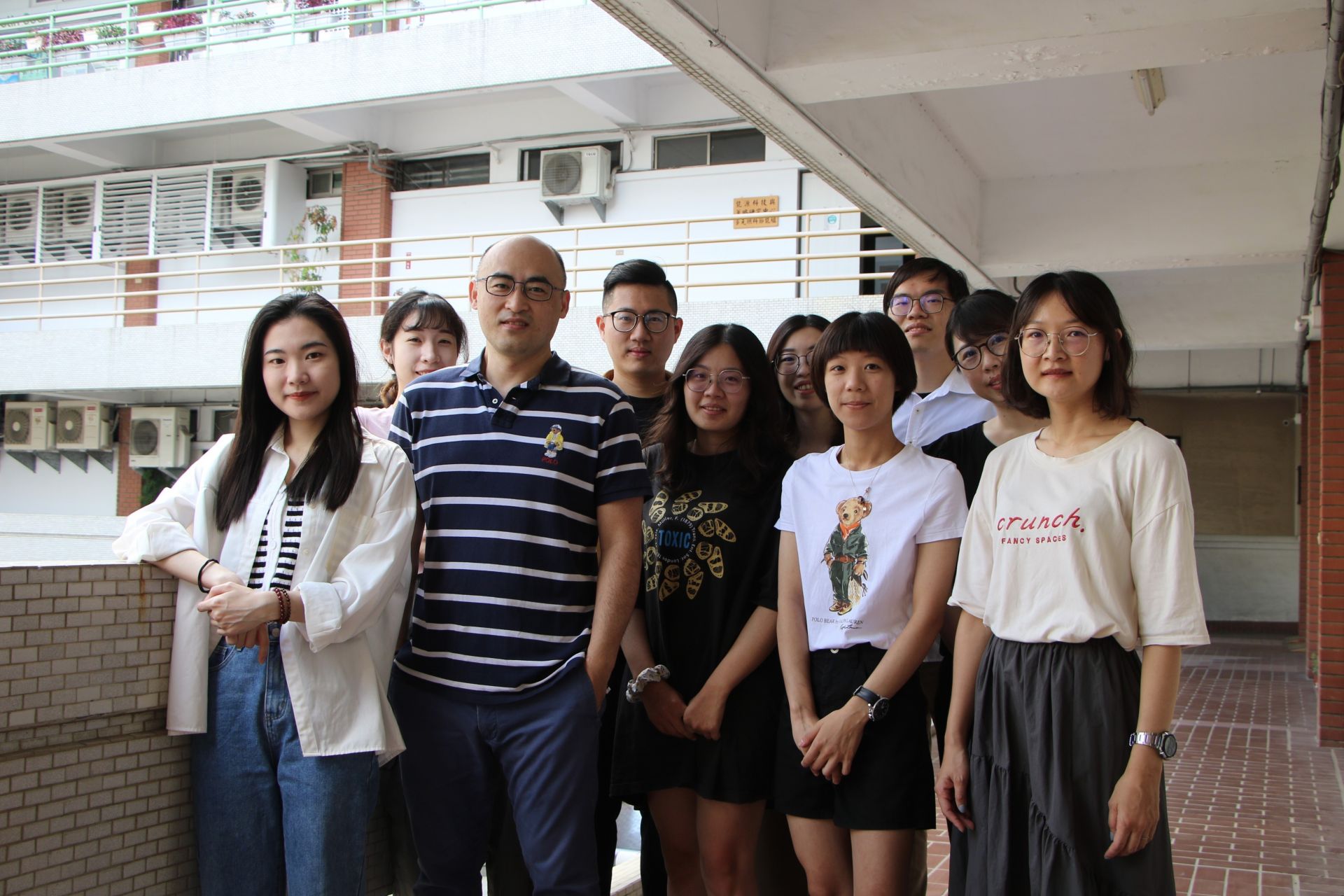
SDG3NCKU Professor Hung-Wei Yang and interdisciplinary team featured in ACS Nano cover story
View more